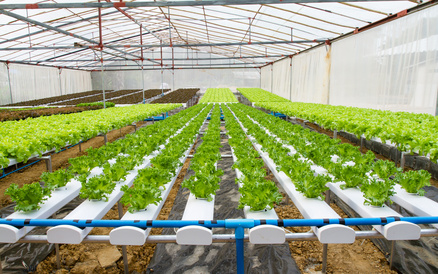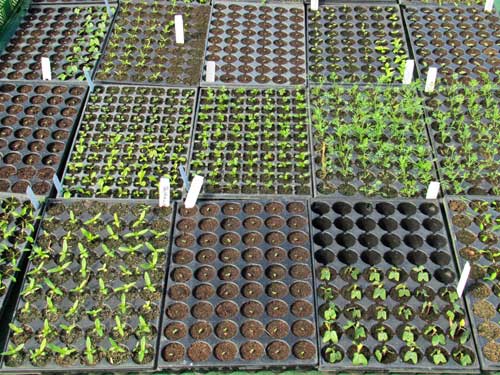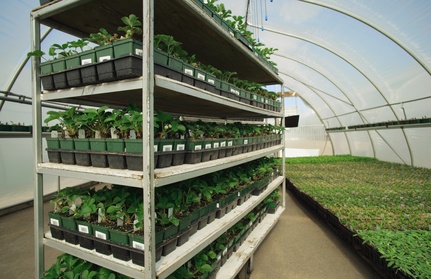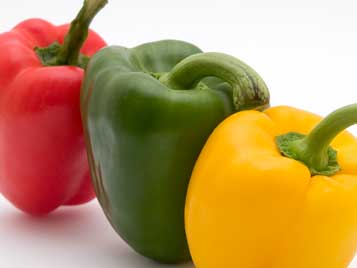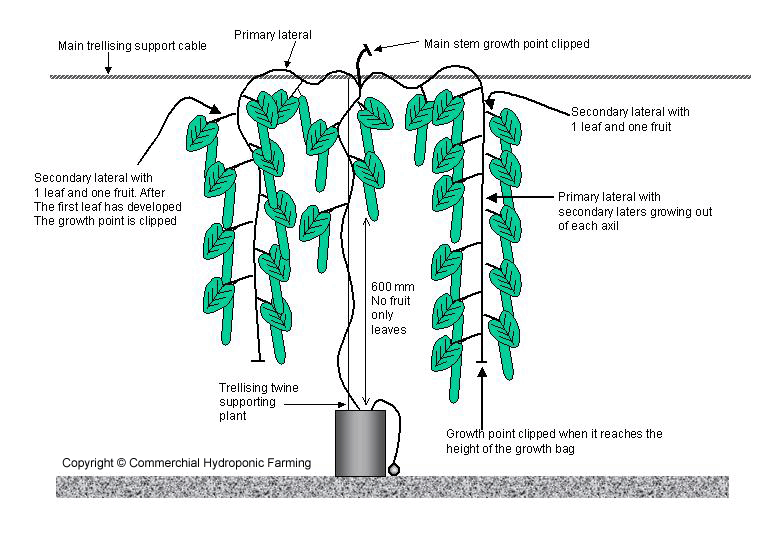Lettuce was cultivated in 4500 B.C. in the Mediterranean basin. Only in 1543 was the first know head lettuce produced in Europe. Lettuce was first cultivated for the edible oils that the leaves produce. Only later, in Egypt, was lettuce leaves eaten raw. There are four lettuce types cultivated for the fresh market, these are: [...]
Nutrient conditioning is the process of managing the nutrient content of seedlings in the nursery for optimal growth when they are transplanted. This sounds easy, but good growers achieve higher yields with the same variety because they understand how to manage it correctly. We all know that plants need adequate levels of nitrogen, phosphorus, potassium, [...]
Light and temperature are two crucial factors in greenhouse hydroponics. Plants use a very small range (only about 5% of visible light) in the total spectrum that is found in the atmosphere. The rest of the incoming radiation is not used in photosynthesis or for any chemical growth process. The range that a plant uses [...]
This is all about getting higher yields early in the season when you can get higher prices. It's about going into the market with a bigger bang and reaping those higher prices. It does not apply during the growing season, because there are other economic factors involved. Remember, bigger plugs means less space in the [...]
If you have grown peppers with other crops, you might have noticed that green peppers grow slower than most others. Even the seedlings take about 2 weeks longer before they can be transplanted. Actually, green peppers grow just as fast, but the perceived vegetative growth is much slower. Green peppers are not less productive than [...]
Physiological disorders caused by low temperatures Low temperatures injury only occurs with fruit that are in storage (either in transit or in storage rooms). Small circular pits each 3-9mm in diameter and up to 1 mm deep appear. They can coalesce to form large irregular sunken areas. The minimum temperature that cucumber fruits should be [...]
Selecting a cucumber pruning system The question arises which system should be used. Each system has its advantages and disadvantages according to the ability and managerial skill of the grower, the experience of his labour, capital available to build the various structures, climatic conditions of the area etc. The easiest to apply are the vertical [...]
Green bean fertigation must be controlled carefully since they are extremely fast growing. There are pro's and con's of fast growing crops. An advantage can be that any deficiency or toxicity can be outgrown quickly. The disadvantage is that the crop can develop one of these physiological disorders very quickly. The speed at which green [...]
Never use chemical that are not registered by your local Department of Agriculture. A range of chemicals that can be used on cucumbers are provided below and must be followed to control most insects and diseases found in hydroponic production systems (in South Africa). Please check your local Agricultural extension officer for a list of [...]
